Martin Auer: The Strange War, Stories for Peace Education

Money
Please share if you want to help to promote peace!
Translated by Martin Auer
Reviewed by Sara Bernal Rutter
Bücher und CDs von Martin Auer

In meinem Haus in meinem Kopf
Gedichte für Kinder

Die Prinzessin mit dem Bart
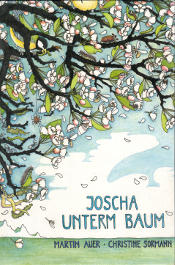 Joscha unterm Baum
Joscha unterm Baum
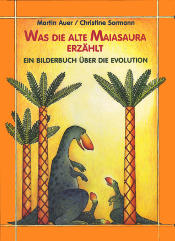
Was die alte Maiasaura erzählt

Die Erbsenprinzessin

Der wunderbare Zauberer von Oz - Hörbuch zum Download
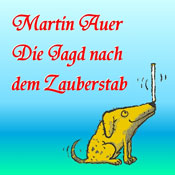
Die Jagd nach dem Zauberstab, Roman für Kinder - Hörbuch zum Download
 Der seltsame Krieg
Der seltsame KriegGeschichten über Krieg und Frieden
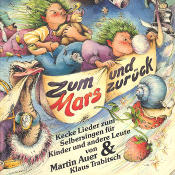
Zum Mars und zurück - Lieder
 Lieblich klingt der Gartenschlauch - Lieder
Lieblich klingt der Gartenschlauch - Lieder
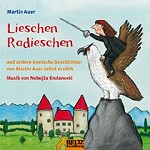
Lieschen Radieschen und andere komische Geschichten - CD
“So what is it, anyway, this money?” Old Kitunda turned the small piece of paper between his fingers.
“It is something the foreigners value very highly”, said his son. “The agent says, if you have lots and lots of these pieces of paper you are considered to be a rich man.”
“This sounds stupid to me”, said old Kitunda. “If you have a lot of cattle and fields with maize and yams, a nice house and many children – then you are rich. What use is a bunch of pieces of paper? Can you eat paper? Can you wear it or sleep in it?”
“Well, the agent says that you can turn it into everything. You can turn it into a house or into a cow or into a beautiful suit of clothes like the ones the foreigners wear.”
“Then is it some sort of magic?”
“No. You can just exchange these pieces of paper for anything you like. If you see a beautiful house you can just offer the owner some pieces of paper and ask him to give it to you. If he does not want to give you the house you offer him more pieces of paper. Eventually he will give you the house if you offer him enough of the paper. Or at least this is what the agent explained to me.”
“Then it must be very strong magic. Maybe the magic makes the owner of the house loose his power to think clearly?”
“No, it’s not like this. The owner of the house can exchange the money for something else. Maybe for one of those cars the foreigners use or for lots of food or for another house. That is why he will let you have his house in exchange for money. With the money he can go somewhere else and buy a house and live there. You cannot carry a house with you.”
“But if he is stupid enough to give away a house for pieces of paper, how does he know he will find another person who is just as stupid and will exchange valuable things for pieces of paper?”
“I really don’t know, father. But the agent says that everybody knows that money is valuable and that is why everybody is willing to exchange things for money.”
Old Kitunda shook his head. “And this agent, he gave you this money?”
“Yes. He told me to go back to the village and to tell all the young men to come and work on the cotton plantation. And for this he gave me the money. And he said, for every man who comes to work he will give me some more money.”
“So he wants the men to work for him on his plantation and in exchange he will give them money?”
“Well, the plantation does not belong to him. It belongs to his boss. And his boss will give us the money.”
“So they want you to go and pick cotton for worthless pieces of paper. And who will look after your cows and who will work in your fields and harvest the maize and the yams?”
“The agent says that with the money his boss will give us we can buy more maize and yams than we would harvest in our fields.”
“And what if he is lying? How can you tell how much this piece of paper is really worth?”
“I don’t know, father.”
The old man brooded for a while. “If you trade with someone you must know the value of the thing you give and of the thing you receive. You know the forest people. They do not grow maize or yams, instead the bring us dried meat and wild honey from the forest and we give them maize and yams in exchange. You know what old Ekianga says when he thinks I am offering him too little maize for his meat. He says: ‘Ah, come on, it took me so long to hunt up this antelope. If you give me so little maize, it is not worth while for me to hunt for you. I would be better off if I started my own field.’ But if he asks too much maize then I say to him: ‘Ah, come on, it is so much work to hack the field and to water the maize and to harvest and dry it. If you give me so little meat for the maize I would be better off if I went hunting in the woods myself.’”
Kitunda’s son smiled: “I know how you two are haggling every time. And I know your reasoning”
“And it is true. If we see the forest people are getting too fat we know we are giving them too much maize for their meat, and if they think that we are getting too fat they know that they are giving us too much meat for our maize. So, you see, by and large it evens out and we are exchanging a day’s worth of hunting for a day’s worth of cultivating. But with this money – I don’t know how it is made and I don’t know the man who makes it. How should I know or even guess how many pieces of paper they can make in one day?”
“I asked the agent the same question. He said that the bank notes are made by machines in the big city and they can make many thousands in one hour.”
“If they can make so many of them in such a short time then these pieces of paper are not worth anything. Not even one grain of maize. Listen to me, my son: don’t go to work on the plantation. You go and work your own fields and you and your family will have plenty of food and everybody will see that you are a wealthy man and they will respect you.”
Kitunda’s son said: “I will think of it, father.”
Kitunda’s son went to see his neighbour and showed him the money the agent had given him: “Here, look at this. This is what the foreigners call money. What will you give me for it?”
The neighbour laughed: “For this? Nothing. When I need something like this I pick some leaves from the next bush. You know what for…”
So Kitunda’s son went to his other neighbour: “Listen, my wife has run out of salt. Will you let me have some salt in exchange for this money?”
The other neighbour said: “Listen, friend, for friendship’s sake I will let you have some salt. You can give it back to me when you can, or you can give me some cassava roots in exchange. But what would I do with these pieces of paper?”
“Well, the foreigners would exchange them for something you need, for some sugar maybe or a nice piece of cotton cloth.”
“I have heard that. But I don’t trust in this. Look, when I have a goat, I know I can always exchange it for something else because everybody needs to drink milk and to eat some meat now and then. But who can guarantee that I will find someone who needs pieces of worthless paper?”
Kitunda’s son went all around the village but no one wanted to exchange something for his money and no one wanted to come to work on the plantation with him. So he did not go to work on the cotton plantation either but worked his own fields like his father and grandfather had done before and his family were healthy and well fed and he was respected by the other villagers.
In the city on the coast, where the foreigner’s ships would unload the goods the foreigners wanted to sell to the locals and take home the cotton and copper and diamonds the foreigners needed in their country across the sea, the governor called his advisors for a meeting.
“We have problems”, he declared. “Trade with our home country is not what it could be. This land is ideal for growing cotton and it is full of copper and diamonds. But we cannot find enough workers to dig in the mines or work on the cotton farms.”
“And what is the reason for this?” the president of the chamber of commerce asked. “There are so many people living here? What are they doing all day?”
“It seems they are content with working their own fields, growing some maize and bananas and keeping some cattle and goats for meat and milk”, the head of the department of agriculture said.
“They’re a bunch of lazybones” said the commander of the colonial troops. “We should just force them to work on the plantations.”
“No. They are just not interested in working for wages”, the head of the department of agriculture said.
“And why do you think they are not interested in working for wages?” the president of the chamber of commerce asked.
“Because they do not understand the concept of money. They think it is just worthless pieces of paper.”
“Well, it is worthless pieces of paper”, the president of the chamber of commerce laughed. “I sometimes wonder myself why it works. I bet people here still measure their wealth in cows and goats.”
“That’s what they do”, said the head of the department of agriculture.
“In a way I agree with them. With cows you know where you are. You can always find someone who wants to eat meat or to drink milk, and if you cannot exchange the cow for anything you can eat it yourself. With gold it’s the same, you can always wear it as jewelry or get your teeth repaired. But we cannot pay them in cows of course. You know, when I was at the university our professor taught us: ‘Anything can serve as money as long as people believe it is money.’”
“Then how can we make them believe that our money is money?” the governor asked.
The president of the chamber of commerce mused: “The young men won’t come to work for money because the farmers won’t give them food for the money. And the farmers don’t accept the money because their craftsmen won’t give them pots or hoes for money. And so on...”
“Then we should make a law that forces them to accept money if someone wants to buy anything”, said the commander of the colonial troops.
“That’s not so easy”, said the head of the department of agriculture. “They would just hide their goods and say they don’t have anything to sell. We know this has happened in other countries. We would not be able to control everybody all the time. No, we must somehow convince them that they need money, that trade and commerce cannot prosper without money.”
“It should not be so hard to convince them.” The head of the department of financial affairs spoke for the first time.
“And how would that be?” the governor asked.
“If we cannot force them to accept money we can force them to pay us money. We demand that everybody pay tax. It is easy to check if someone has paid their tax or not. And the tax has to be paid in our paper money. So everybody will need to get this money somehow. And they will be willing to work for money and to trade goods for money. We will have the workers we need and we will be able to sell them our goods.”
“Splendid idea!” said the governor and the president of the chamber of commerce and the head of the department of agriculture clapped their hands.
“And if they don’t pay they will go to prison!” the commander of the colonial troops added and this time the others applauded him too.
“Well”, said old Kitunda, “Now they’ve got us where they wanted us.”
The young men were ready to leave for the plantation.
“Don’t worry, father”, said Kitunda`s son. “I am going to earn the money to pay the tax for you and for mother and for my wife. So our family will be safe.”
“Yes. But our fields will lie waste because we will be missing your strong arms. We will never again be able to look after ourselves, we will be depending on the foreigner’s money and the work they let us do.”
Old Kitunda embraced his son: “I hope that when you come back from the plantation I will still be alive to greet you. But then on the other hand, maybe I don’t want to live any longer. You know, when first they came, some of us wanted to fight them. But now they have really defeated us. Nothing will ever be as it was before.”
And the young men left.
Author's comments
This site has content self published by registered users. If you notice anything that looks like spam or abuse, please contact the author.
